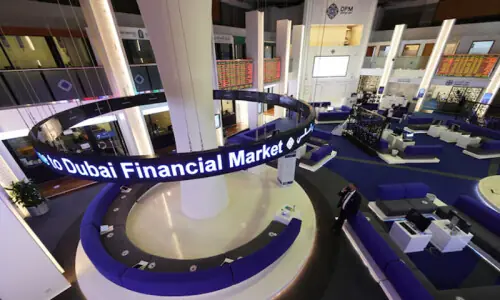THE world order is changing. More than five centuries after Western European powers initiated the modern era of maritime trade and colonisation, a non-Western nation, China, has emerged as a genuine contender for global supremacy.
For most of the 45 years since it realigned itself with the global capitalist order after the death of Mao Zedong, Beijing has tread carefully. It has meticulously cultivated economic ties with the West, particularly after the end of the Cold War signalled the outsourcing of manufacturing industry to East Asia.
Having enjoyed rapid economic growth under the regime of neoliberal globalisation, China’s ambitions have become decidedly less inhibited. The most recent example of this is Beijing’s ground-breaking mediation between the long-feuding Saudis and Iranians. The Chinese have even offered to broker between the Palestinians and Israelis.
Not so long ago, such diplomacy was Washington’s calling card alone. But the US is now unable to project unchallenged supremacy in international diplomacy; it is barely managing to maintain a common position with other Western powers like France and Germany on geopolitical conflicts like Russia-Ukraine.
Indeed, non-Western pacts like BRICS and the SCO loom large on the world stage, with talk of de-dollarising global commodity trades such as oil becoming widespread.
Here in Pakistan there has been much hyperbole about moving away from our historical dependence on Washington and deepening our ties with Beijing (and its allies, including Moscow). Between 2015-2018, in fact, the political and intellectual mainstream was awash with uncritical support for CPEC; who can forget the rhetoric that CPEC would be a game changer for Pakistan?
Time has watered down these simplistic slogans, and it is worth recalling that the Pakistani state — the military establishment in particular — has always rented out our strategic location to the highest bidder. We need to move beyond establishment-sponsored rhetoric and engage in substantive debate over whether the majority of the people in Pakistan would benefit from a China-centric world order.
Will a China-centric world benefit Pakistan?
The experience with CPEC so far is instructive. While Chinese companies and Pakistani authorities mine for coal in Thar and celebrate the setting up of power plants, local communities thirst for water.
While TV and social media celebrities gush over Gwadar’s scenery, roads and port facilities, local communities protest for basic amenities, dignity and livelihoods. While GB serves as the gateway for CPEC, its people are increasingly resentful of mining, road-building and other contracts for outsiders.
Clearly, most of the aid that came into Pakistan for CPEC ‘early harvest’ projects has exacerbated our rapidly growing, unsustainable debt burden. Indeed, one reason for the IMF’s continued dithering on the $1.3 billion tranche is its concern that its monies will be used to pay off Chinese debt.
One can debate whether Chinese loans are more or less exacting than the IMF’s and other Western donors’. But the fact is that Chinese ‘aid’ is not a freebie. Meanwhile, Pakistan’s already suffocated industrial sector has hardly benefited from the flood of cheap Chinese manufactured goods that are ubiquitous in markets around the country. Whether future CPEC projects will turn these patterns on their head remains to be seen.
Put simply, if China is to be a global power of different repute to the US, its interventions must demonstrably contribute to the welfare of Pakistan’s working masses rather than buttressing the power of the establishment, property dealers, construction lobbies and big traders.
Indeed, a Chinese-centric world order will have to live up to Beijing’s own rhetoric about building an ‘ecological civilisation’. Last year’s floods made clear that Pakistan’s peripheries bear the brunt of global warming and other effects of climate change.
There can be no uncritical celebration of coal-fired power, mineral exploration and infrastructural development without a reckoning of what this will mean for already devastated local ecologies.
The prospect of Western hegemony being displaced is certainly a welcome one for the majority of the world’s people who have been subjugated by Euro-American imperialism for centuries.
The US establishment is certainly fearful of Beijing’s rise, which is why it is patronising a China-bashing campaign; many Western progressives are rightly resisting Washington’s prosecution of what they see as a ‘new Cold War’. But as we approach the 137th commemoration of the workers revolt of 1886 — May Day — it is necessary to demand that the prospective Chinese rulers of our putatively shared world demonstrate their commitment to working class internationalism and live up to the principles of the Chinese revolution.
The writer teaches at Quaid-i-Azam University, Islamabad.
Published in Dawn, April 28th, 2023


































